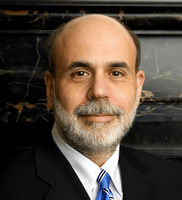Low interest rates have become something of a staple at the U.S. Federal Reserve in recent years. However, early last month, the U.S. central bank took its "cheap dollar" policy to another level by committing to near-zero interest rates for the foreseeable future. The Fed's decision has its roots in domestic economic goals: With American unemployment hovering above 10 percent, low rates are seen as a way to jump-start bank lending to businesses -- a necessary first step in getting these firms to increase staffing. Low rates also make it cheaper to buy a home and should help the U.S. housing market to rebound.
However, U.S. monetary policy does not just affect the American economy. Indeed, the Fed's decisions have far-reaching implications for the entire international economic system. So, what are the global consequences of a "cheap dollar"?
In recent weeks, a number of top economic policymakers from the world's largest economies -- including China, Japan and Germany -- have raised concerns about one potential consequence of the Fed's decision to keep U.S. rates low: the possibility that it will fuel speculative bubbles around the world.

